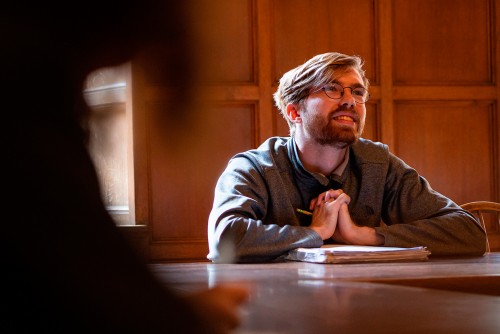Studying Public Policy at Kenyon
Students in public policy begin their inquiry with courses in economics, political science and sociology to analyze public policy problems and to understand how public policy is formulated and implemented. Students choose elective courses and apply foundational principles to specific policy areas.
Featured Courses
Wealth and Power
People in the U.S. are aware of social differences, yet few have a precise understanding of social class, the magnitude of inequality or why it exists at all. This course examines social stratification through various political approaches, presenting arguments made by conservatives, liberals, libertarians and radicals.
Public Policy
Students’ theoretical knowledge of politics and economics meets reality in this course, which looks at how elected officials, bureaucrats and interest groups craft public policies that affect everything from forest management to healthcare systems — and examines the challenges that stand in the way of policymaking.
Principles of Microeconomics
What do people mean when they say “supply and demand,” “free trade” or “opportunity cost”? What’s the difference between price and cost? This course presents theories of consumer and producer behavior and shows how these theories can be used to predict the consequences of individual, business and government actions
Congress and Public Policymaking
Does the U.S. Congress possess the capacity for independent and effective law-making, budgeting and oversight of the executive? To what extent has Congress ceded policymaking responsibility to the president? This course explores these questions and more by examining the historical development and contemporary performance of the U.S. Congress.
Kenyon College
Gambier, Ohio 43022
